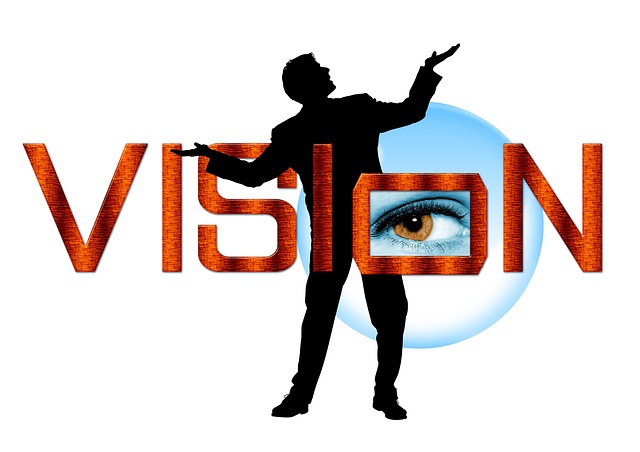A great leader has an overarching vision (“Wow, we can see for miles from here!”), but also remembers to pay attention to the little things (“Hey, where are my pants?!”)

All good leaders have a vision of where they want to go, but it’s usually the tiny little nuances that, when added together, inspire others to help them and make all the difference when it comes to their success. How well they pay attention to those nuances often determines whether they get there intact… or get there at all. It also determines whether they get support from the team the next time they request it.
They play out the journey ahead of time.

Pants (and shirts and jackets!) aside, WOW leaders determine in advance all of the tools and steps that will be necessary, and in which sequence, in order to avoid missing nuances that could turn their dream journey into a nightmare.
For a leader commencing a complex long-term project, playing through the scenario in their minds, and with their teams, before the project starts helps them conduct “what if” scenarios to help them walk through every step of the journey before it commences. This not only helps prevent them from forgetting important steps and necessary tools, but it helps them sequence the steps properly. Without playing it out, they could get halfway through the journey, only to discover that a step they anticipated later in the journey was actually a showstopper that should have been accomplished early on.
They share their vision and give as much detail as possible about what the end result should look like.
 How often do we, as leaders, assume our team members know exactly what we’re looking for, only to find out later that our vision and expectations weren’t clear enough to get everyone on the same page, much less accomplish the goal – on schedule, on budget, or at all?
How often do we, as leaders, assume our team members know exactly what we’re looking for, only to find out later that our vision and expectations weren’t clear enough to get everyone on the same page, much less accomplish the goal – on schedule, on budget, or at all?
To illustrate the importance of this point in one of my training programs, I had groups of people work together to assemble 3-D foam puzzles as quickly as possible; however, I failed to tell them that the puzzles were 3-D. Their assumption was that these were traditional (flat) puzzles, and the teams quickly became frustrated by their lack of progress. I suddenly “remembered” that I hadn’t told them that the end result was 3-D, not flat. A collective groan went up from the crowd as I asked them, “Would that have been helpful to know up front?” Once they had the vision, they were able to quickly complete the puzzles.
They keep their mission and purpose front and center, so everyone remembers their “why.”

When we embark on long and complex projects, it’s easy to get bogged down in the details and forget exactly why we’re doing it. The vision may be a great one, but if we allow our team members to forget it, it’s easy for them to get de-motivated and sidetracked. Showing them tangible evidence (such as videos) of the success of others on the same journey, and allowing them to feel strong emotions toward the vision, each other and the people they serve, helps re-connect them with their initial passion for its objectives.
Small celebrations along the way also help provide opportunities for them to recognize and feel good about their progress. Why do charities “light up the floors on the Empire State Building” for every $X,XXX dollars raised, for example? It’s to keep the passion and excitement of the goal – and all its milestones – alive in tangible, visual, visceral ways!
They ask for advice… and then take it (or at least consider it).
 When was the last time that someone you highly respected asked you for help? How did it make you feel to be asked? And wouldn’t you go to the ends of the earth to get them what they asked for? Of course you would. But now think about how you’d feel if they just threw that advice away and acted as though you’d never offered it… and never even thanked you for trying. Not such a big deal any more, is it? What would happen the next time they asked you for something? My guess is that you’d feel a little less inclined to try as hard next time.
When was the last time that someone you highly respected asked you for help? How did it make you feel to be asked? And wouldn’t you go to the ends of the earth to get them what they asked for? Of course you would. But now think about how you’d feel if they just threw that advice away and acted as though you’d never offered it… and never even thanked you for trying. Not such a big deal any more, is it? What would happen the next time they asked you for something? My guess is that you’d feel a little less inclined to try as hard next time.
Let’s not forget that we’re all human, and we all feel the same way. A little respect goes a long way. WOW leaders know that they don’t (and can’t) have all the answers themselves. They surround themselves with good people with good ideas and then ask for those ideas when trying to improve a situation or accomplish a goal. When team members know they are respected enough to be asked for their opinions and advice, they will go to the wall for the leaders who show them that respect.
They say “thank you” – often.
 Too many leaders still believe that this is an unnecessary step in the business world. They are wrong. As far as I know, humans are still human, even in the workplace, and if we want them to behave in a human and humane manner toward others, leaders must behave in a human and humane manner toward them.
Too many leaders still believe that this is an unnecessary step in the business world. They are wrong. As far as I know, humans are still human, even in the workplace, and if we want them to behave in a human and humane manner toward others, leaders must behave in a human and humane manner toward them.
And here’s the kicker: many leaders complain that the only thing their workers are interested in is the paycheck associated with their jobs. Well, if we want to attract and retain people who in it for more than just the paycheck, we’d better offer them more than just the paycheck associated with their jobs in return. Sometimes, the non-monetary things we can offer, such as respect, the opportunity to learn and grow, personal pride, and yes those two little words – “thank you” – go much further in compensating someone for caring a little more and for taking ownership for creating success than a mere paycheck could ever do.
When all is said and done, turns out those “little” things aren’t so little, after all. If they’re not done consistently, a leader may still be able to accomplish his or her agenda… or maybe not.
But if they’re done well, they can add up to great big WOW experiences that are profitable, predictable, repeatable and – maybe most importantly of all… enjoyable!

